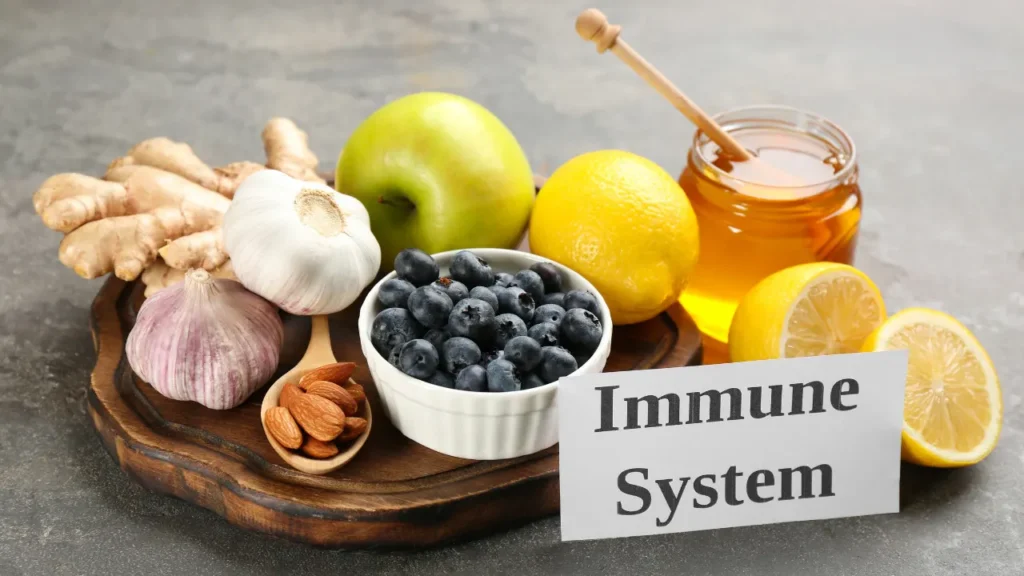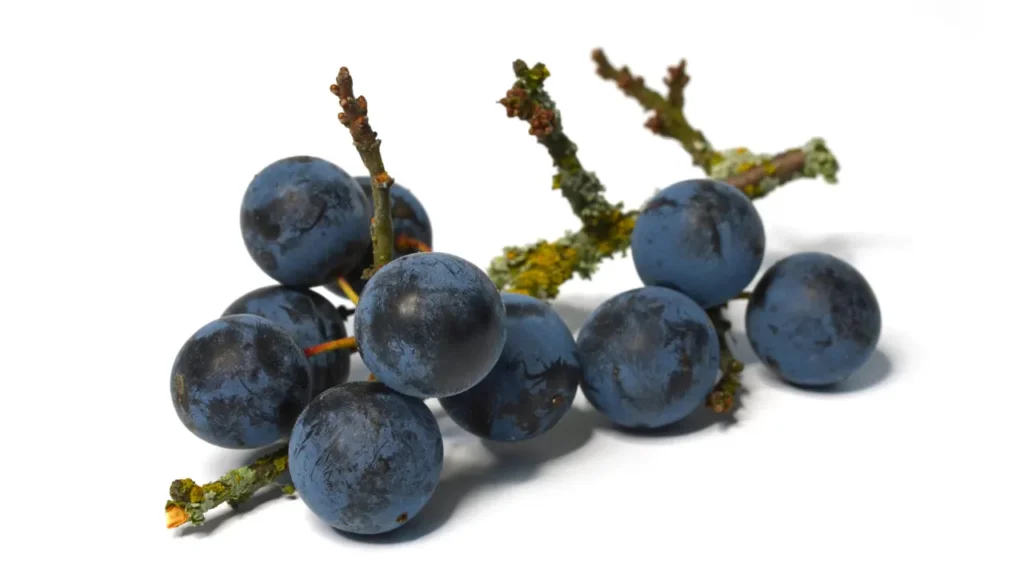A common folk remedy for several health issues is blackthorn (Prunus spinosa), a deciduous shrub native to Europe, western Asia, and northwestern Africa. Recent scientific research has started to examine this dietary supplement’s potential health advantages, ideal dosage, side effects, drug interactions, and best ethical applications. This page aims to explain the chemistry, physiological mechanisms, and prospective applications of blackthorn by thoroughly studying the pertinent scientific literature on the plant’s active ingredients.
You May Also Like:
Keep Your Brain Young With the 5 Most Powerful Nootropic Supplements
Finding the Best Supplements for Brain Fog After COVID: 5 Top Brands Reviewed
Blackthorn: Benefits, Dosage, Side Effects, Drug Interactions, And Other Important Information is an original (NootropicsPlanet) article.
Nature of Blackthorn (Prunus spinosa)
A member of the Rosaceae family, blackthorn is a deciduous shrub with the scientific name Prunus spinosa. It grows naturally in hedgerows, forests, and scrublands and is indigenous to Europe, western Asia, and northern Africa. Small, oval leaves and dense, thorny branches are the distinguishing features of blackthorn. The shrub produces small, white flowers in the early spring, and in the autumn, it bears sloes, which are dark blue, almost black fruits.
The bioactive substances present in blackthorn, which have long been utilized in folk medicine to treat a variety of health issues, are primarily found in sloes. The phenolic components, flavonoids, tannins, and anthocyanins found in the fruits give blackthorn its anti-inflammatory, antibacterial, immunomodulatory, and antioxidant qualities.
Blackthorn is used in both culinary and medicinal preparations. It is used to make sloe gin, a well-known liquor in the United Kingdom, as well as preserves such as jams and jellies. Because blackthorn is a dense hardwood, it can be used to make tool handles, walking sticks, and other robust objects.
Health Benefits of Blackthorn
Blackthorn has been investigated for its possible health benefits in a variety of contexts based on the following mechanisms of action, including:
- Cardiovascular Health: Studies have shown that blackthorn extract has cardioprotective properties by lowering lipid peroxidation, preventing platelet aggregation, and enhancing vascular endothelial function. These characteristics might reduce the risk of cardiovascular disorders and assist in stopping the onset of atherosclerosis.
- Preclinical investigations have shown that blackthorn has neuroprotective benefits, which may be attributed to its antioxidant and anti-inflammatory characteristics. Blackthorn may slow the progression of neurodegenerative diseases like Alzheimer’s and Parkinson’s by lowering oxidative stress and inflammation in the brain.
- Digestive Health: Blackthorn’s anti-inflammatory and antibacterial properties can improve digestive health by reducing inflammatory bowel disease symptoms and avoiding gastrointestinal infections. Blackthorn’s tannins can also work as astringents, preventing diarrhea and promoting a healthy digestive system.
- Diabetes Management: By blocking the enzymes -amylase and -glucosidase, which are involved in the breakdown of carbohydrates, blackthorn has shown possible hypoglycemic effects. Blackthorn may aid in regulating postprandial blood glucose levels in people with type 2 diabetes by delaying the digestion of carbohydrates.

Chemistry of Blackthorn
Sloes, or blackthorn fruits, contain a wide range of bioactive substances, such as phenolic compounds, flavonoids, tannins, and anthocyanins. These elements provide blackthorn with antioxidant, anti-inflammatory, and antibacterial qualities, contributing to its variety of health benefits. The most prevalent phenolic chemicals are hydroxycinnamic acid derivatives and flavonol glycosides, with the most flavonols being quercetin, kaempferol, and isorhamnetin. The sloes’ distinctive dark blue color results from their high anthocyanin content, notably cyanidin-3-glucoside and cyanidin-3-rutinoside.
Physiological Mechanism of Action
The synergistic effects of blackthorn’s bioactive substances on the body and brain are responsible for its health advantages. Antioxidant, anti-inflammatory, antibacterial, and immunomodulatory properties are some of the main modes of action.
- Antioxidant Effects: Blackthorn contains phenolic compounds and flavonoids with potent antioxidant properties. These substances combat free radicals and shield cellular components from oxidative damage. These antioxidants can guard against oxidative stress-related chronic illnesses such as cardiovascular disease, neurological diseases, and some malignancies.
- Anti-inflammatory Effects: Blackthorn extracts have been shown to be anti-inflammatory, which is likely due to their ability to block pro-inflammatory mediators such as cyclooxygenase-2 (COX-2), nitric oxide synthase (iNOS), and tumor necrosis factor-alpha (TNF-alpha). Blackthorn may help improve the signs of several inflammatory illnesses, such as arthritis, inflammatory bowel disease, and asthma, by lowering inflammation.
- Antimicrobial Effects: A variety of bacteria, fungi, and viruses have been shown to be vulnerable to the tannins and phenolic chemicals found in blackthorn. These substances might serve as natural substitutes for synthetic antimicrobial drugs and support the immune system’s ability to fight infections.
- Immunomodulatory Effects: Blackthorn extract has the ability to modulate immunological responses by increasing the activity of natural killer (NK) cells and boosting the production of certain cytokines. These results might add to blackthorn’s general immune-stimulating effects.

Optimal Dosage
The ideal blackthorn dosage is determined by several variables, including the patient’s age, weight, overall health, and particular health concerns. Clinical trials have used different doses of blackthorn extract, ranging from 100 to 1000 mg daily, even though there is no standard dosage. Before beginning a blackthorn supplementation plan, speaking with a healthcare practitioner as you would with any supplement is crucial.
Side Effects
In general, moderate consumption of blackthorn is regarded as safe. However, because of its astringent qualities, consuming too much blackthorn might have adverse side effects such as diarrhea, nausea, and gastrointestinal pain. Individuals with allergies to plants in the Rosaceae family (which includes blackthorn) may experience allergic reactions. Blackthorn may also contain anticoagulant properties, which could raise the risk of bleeding in people using blood-thinning drugs like aspirin or warfarin.
Additionally, blackthorn’s hypoglycemic properties may interact with diabetes drugs, potentially causing abnormally low blood sugar levels. When considering taking blackthorn supplements, people with diabetes should regularly check their blood sugar levels and speak with their doctor.

Potential Substance Interactions with Blackthorn
Blackthorn (Prunus spinosa), which contains bioactive chemicals and has pharmacological characteristics, may interact with some drugs and substances. The following are a few examples of possible drug interactions:
- Blood-thinning medications such as warfarin, heparin, or antiplatelet drugs such as aspirin and clopidogrel may increase the risk of bleeding in those using blackthorn because it has been discovered to have anticoagulant qualities. Before beginning a blackthorn supplement, consult your doctor if you are taking anticoagulant or antiplatelet medication to prevent potential interactions.
- Diabetes Drugs: Blackthorn’s hypoglycemic properties may interfere with diabetes drugs like insulin, metformin, or sulfonylureas, perhaps causing dangerously low blood sugar levels. When contemplating blackthorn supplements, if you are using diabetes medications, it is crucial to check your blood sugar levels regularly and speak with your doctor.
- Hypertension Drugs: Despite the paucity of studies, several studies have suggested that blackthorn may have vasodilatory effects that may interact with hypertension drugs such as ACE inhibitors, angiotensin receptor blockers (ARBs), or calcium channel blockers. Before using blackthorn supplements, talk to your doctor if you use hypertension medication to prevent any potential interactions.
- Cytochrome P450 Substrate Drugs: The bioactive chemicals in blackthorn may interfere with the cytochrome P450 (CYP450) enzyme system, which is essential for the metabolism of drugs. As a result, blackthorn may interact with drugs that are CYP450 substrates, changing their pharmacokinetics and possibly causing negative side effects or decreased efficacy.
Best Responsible Uses
It’s critical to take into account the following recommendations to ensure the responsible use of blackthorn as a dietary supplement:
- Before beginning any supplement plan, speak with a medical professional, especially if you have pre-existing conditions or are taking medications that may interact with blackthorn.
- To guarantee the safety and effectiveness of the product, pick blackthorn supplements of the highest caliber from reliable suppliers.
- Comply with the dosage recommendations given by your doctor or the supplement’s manufacturer, and make any necessary adjustments based on your particular response.
- Keep an eye out for any negative effects or drug interactions, and stop using blackthorn if they occur.
Blackthorn:
Conclusion
While blackthorn has a history of traditional use and may offer certain health benefits, it is crucial to approach its use with caution. Scientific evidence on its efficacy and safety is limited, and potential side effects and interactions should be considered. Before incorporating blackthorn or any herbal remedy into your healthcare routine, it is advisable to consult with a healthcare professional, especially if you are taking prescription medications or have pre-existing health conditions. Additionally, staying updated with the latest research is important, as new findings may emerge over time.

References:
- Health Benefits of Blackthorn Fruit link: https://greg.app/blackthorn-benefits/
- Exploring the Potential Health Benefits of Blackthorn (Prunus spinosa). Link: https://www.rxlist.com/supplements/blackthorn.htm
Important Note: The information contained in this article is for general informational purposes only, and should not be construed as health or medical advice, nor is it intended to diagnose, prevent, treat, or cure any disease or health condition. Before embarking on any diet, fitness regimen, or program of nutritional supplementation, it is advisable to consult your healthcare professional in order to determine its safety and probable efficacy in terms of your individual state of health.
Regarding Nutritional Supplements Or Other Non-Prescription Health Products: If any nutritional supplements or other non-prescription health products are mentioned in the foregoing article, any claims or statements made about them have not been evaluated by the U.S. Food and Drug Administration, and such nutritional supplements or other health products are not intended to diagnose, treat, cure, or prevent any disease.


